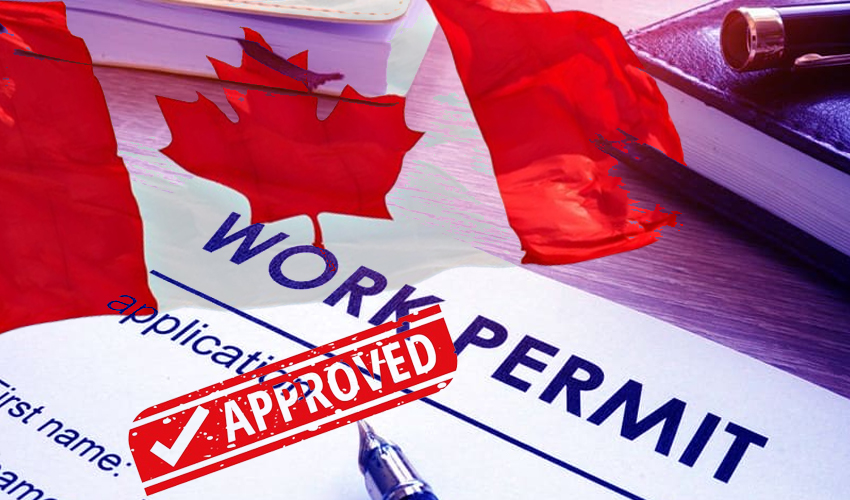Visa Guide
How Long Can Nigerians Stay In The UK?
Plan to travel to the UK as a Nigerian? Learn how long you can stay, visa requirements, and more in this comprehensive guide. Your hassle-free UK stay starts here!
Are you a Nigerian citizen planning to travel to the UK? If so, you may be wondering about the duration of your stay. The rules and regulations surrounding Nigerians staying in the UK can be complex, but fear not! In this article, we will provide you with all the information you need to know about how long you can stay in the UK as a Nigerian citizen. From visa requirements to maximum stay limits, we’ve got you covered. So, let’s get started and ensure you have a hassle-free stay in the UK!
Visa Types for Nigerians
Are you a Nigerian planning to visit or study in the United Kingdom? Or perhaps you are considering working or reuniting with your family there? Understanding the different visa types available to Nigerians is essential for a smooth and successful journey. In this comprehensive guide, we will explore the various visa options, their requirements, application processes, and even touch on important topics such as visa extensions, Brexit’s impact, overstaying consequences, and residency/citizenship options. So let’s dive in!
Standard Visitor Visa
For those looking to explore the vibrant culture, historical sites, or visit friends and family in the UK, the Standard Visitor Visa is the ideal option. This visa allows you to stay in the UK for up to 6 months. Whether you’re attending a business meeting, going on a holiday, or participating in an academic conference, this visa offers flexibility and ease of travel.
Length of Stay
The Standard Visitor Visa allows Nigerians to stay in the UK for a maximum of 6 months, giving you ample time to experience the wonders of the country.
Requirements
To obtain a Standard Visitor Visa, you need to provide the following documents:
- Valid passport or travel document
- Proof of sufficient funds to cover your stay and any expenses
- Confirmation of your accommodation arrangements in the UK
- Evidence of your intention to leave the UK at the end of your visit
- Any additional documentation related to the purpose of your visit, such as invitations, business letters, or event tickets
Application Process
To apply for a Standard Visitor Visa, you can complete the online application form on the official UK government website. After submitting the application, you will need to book an appointment at a Visa Application Center in Nigeria to submit your biometrics (photograph and fingerprints) and provide the required supporting documents. It is essential to apply well in advance of your intended travel date to ensure sufficient processing time.

Tier 4 Student Visa
If you’re a Nigerian student eager to pursue higher education in the UK, the Tier 4 Student Visa is your gateway to world-renowned universities and a transformative academic experience. This visa allows you to study full-time, work part-time, and even bring your dependents along.
Length of Stay
As a Tier 4 student, you can remain in the UK for the duration of your course, plus a few extra months to wrap up your affairs. After completing your studies, you may also be eligible for a post-study work visa to kickstart your career in the UK.
Requirements
To apply for a Tier 4 Student Visa, you’ll need to meet the following criteria:
- An offer from a registered UK educational institution
- Proof of English language proficiency
- Sufficient funds to cover course fees and living expenses
- Tuberculosis (TB) test results (if applicable)
- Health insurance
- Academic qualifications and transcripts
Application Process
To apply for a Tier 4 Student Visa, you must first secure an acceptance letter from a recognized UK educational institution. After receiving the acceptance letter, you can proceed to fill out the online visa application, pay the required fees, and schedule an appointment at a Visa Application Center in Nigeria. During the appointment, you will submit your biometrics, supporting documents, and attend an interview (if necessary).
Tier 2 Work Visa
For Nigerian professionals seeking employment opportunities in the UK, the Tier 2 Work Visa is the pathway to work legally and contribute your skills to the British workforce. This visa category requires you to have a job offer from a UK employer and a valid Certificate of Sponsorship (CoS).
Length of Stay
With a Tier 2 Work Visa, you can stay in the UK for the duration of your employment contract, up to a maximum of 5 years and 14 days. There is also an option to extend or switch to another visa category before your initial visa expires.
Requirements
To be eligible for a Tier 2 Work Visa, you must meet the following requirements:
- Valid job offer from a licensed UK employer
- Certificate of Sponsorship from your employer
- Adequate English language skills
- Sufficient funds to support yourself and any dependents
- Tuberculosis (TB) test results (if applicable)
Application Process
To apply for a Tier 2 Work Visa, your employer must first obtain a valid Certificate of Sponsorship on your behalf. Once this is in place, you can proceed with completing the online visa application, paying the fees, and scheduling an appointment at a Visa Application Center in Nigeria. During the appointment, you will provide your biometrics and submit the necessary supporting documents to support your application.
Family Visa
If you have immediate family members who are either permanent residents or British citizens, the family visa allows you to join them and build your life together in the UK. This visa category encompasses various relationships, including spouses, partners, children, and dependent relatives.
Length of Stay
The length of stay with a Family Visa depends on the specific type of visa and relationship. Spouses and partners can stay initially for 2.5 years, which can be extended later. Children and dependent relatives have their own specific criteria and length of stay options.
Requirements
To be eligible for a Family Visa, you must meet the following requirements:
- Relationship with a UK permanent resident or British citizen
- Evidence of a genuine and subsisting relationship
- Adequate accommodation in the UK
- Financial requirements to support yourself and any dependents
- English language proficiency (in some cases)
Application Process
The application process for a Family Visa involves completing the online application form, paying the fees, and scheduling an appointment at a Visa Application Center in Nigeria. You will need to provide your biometrics and submit the necessary supporting documents, which may include marriage certificates, birth certificates, and proof of relationship.
Ancestry Visa
For Nigerians with a grandparent born in the UK, the Ancestry Visa offers a unique opportunity to work and live in the UK. This visa is designed to establish ties to the UK through ancestral heritage and provides a pathway to British citizenship.
Length of Stay
With an Ancestry Visa, you can stay in the UK for up to 5 years. After this period, you may be eligible to apply for Indefinite Leave to Remain (ILR) and eventually British citizenship.
Requirements
To qualify for an Ancestry Visa, you must meet the following criteria:
- Grandparent who was born in the UK
- Ability to work and intend to take or seek employment in the UK
- Limited access to public funds
- Maintenance funds to support yourself and any dependents
- English language proficiency (in some cases)
Application Process
To apply for an Ancestry Visa, you’ll need to complete the online visa application, pay the fees, and book an appointment at a Visa Application Center in Nigeria. During the appointment, you will provide your biometrics and submit the necessary supporting documents, including your grandparent’s birth certificate and evidence of your intention to work or seek employment in the UK.
Extension of Stay
If you find yourself needing to extend your stay in the UK, whether for further study, employment, or family reasons, it’s essential to understand the process and restrictions involved.
Applying for an Extension
To extend your visa, you will generally need to submit an application before your current visa expires. The specific requirements and application process will vary depending on the visa category. It’s essential to check the official UK government website or seek advice from an immigration solicitor to ensure you meet all the necessary criteria.
Restrictions on Extending Stay
While extensions are possible in many cases, it’s important to note that there may be restrictions on how long you can extend your stay. Some visas, such as the Tier 4 Student Visa, have specific time limits, while others, such as the Ancestry Visa, allow for longer-term stay options. It’s crucial to understand these restrictions and plan accordingly.
Brexit and Its Impact
With the United Kingdom’s exit from the European Union (EU), commonly referred to as Brexit, there have been changes in visa regulations that directly impact Nigerians planning to travel or live in the UK.
Changes in Visa Regulations
As a result of Brexit, the UK has introduced a new points-based immigration system. This system prioritizes skills, qualifications, and job offers when considering visa applications. Additionally, EU free movement rules no longer apply to Nigerians, meaning that travel and work opportunities may be subject to different requirements.
Impact on Nigerians in the UK
If you are a Nigerian currently residing in the UK, the impact of Brexit may vary depending on your immigration status. It is crucial to stay informed about any changes in visa regulations, seek legal advice if necessary, and ensure you have the appropriate documentation to continue living and working in the UK.
Overstaying and Consequences
Overstaying your visa in the UK can have severe consequences, including penalties, deportation, and future visa rejections. It’s crucial to understand the implications of overstaying and take the necessary steps to remain compliant with visa regulations.
Consequences of Overstaying
If you overstay your visa, you may face the following consequences:
- Financial penalties
- Future visa rejections
- Deportation and removal from the UK
- Difficulty in traveling to other countries
- Impact on future immigration applications
Enforcement Measures
The UK immigration authorities take overstaying seriously and have robust measures in place to monitor and enforce visa compliance. These measures include employer checks, immigration raids, and collaborations with other government agencies. It is always best to adhere to the visa rules and seek advice if you have any concerns about your immigration status.
Residency and Citizenship Options
If you have been living in the UK for an extended period and wish to establish stronger ties to the country, there are options available to obtain long-term residency and even British citizenship.
Indefinite Leave to Remain
Indefinite Leave to Remain (ILR) is the legal status that allows you to reside and work in the UK without any time restrictions. To be eligible for ILR, you generally need to have lived in the UK for a specified period under a qualifying visa category, such as the Tier 2 Work Visa or Ancestry Visa.
British Citizenship Application
Obtaining British citizenship offers a range of rights and privileges, including the ability to vote and access certain benefits. The requirements for British citizenship applications vary and are typically based on factors such as the length of residency, knowledge of the English language, and knowledge of life in the UK. It’s important to meet all the eligibility criteria and gather the necessary documents before applying.
In conclusion, understanding the different visa types for Nigerians is crucial when planning your journey to the UK. Whether you are visiting, studying, working, reuniting with family, or aiming for long-term residency or citizenship, knowing the requirements and application processes will help ensure a smooth and successful experience. Remember to check the official UK government website or consult with an immigration solicitor for the most up-to-date information and guidance. Good luck on your UK adventure!






